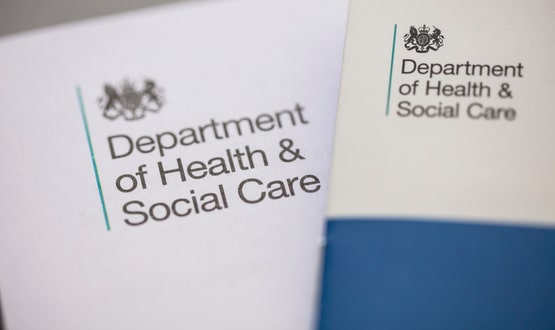NHS Alliance urges full record access for patients
- 14 April 2008
The NHS Alliance is calling for patients to have electronic access to their full primary care record as part of its manifesto for a 21st century health service.
The organisation, whose membership includes GP practices and PCTs, has published its proposals for reform of the health service in a new report, In Sickness and In Health, intended to inform Lord Darzi’s NHS Review.
In the report, calls for greater integration of care between hospitals, GPs and community services, and for greater public involvement in care are raised. It also calls for GPs to take back responsibility for out-of-hours care.
Dr Michael Dixon, chairman of the NHS Alliance and GP in Devon, said practice-based commissioning, or other mechanisms to enable GPs to commission out-of-hours care, did not exist when the nGMS contract was negotiated.
He added: “Now that we do have the means, we should grasp the opportunity. Many doctors are concerned that healthcare is becoming more fragmented – highlighted by a recent survey that found one in five GPs would be willing to return to working out of hours.
“The decisions about who should provide what services need to made locally, as close to the patient as possible, by GP Practice Based Commissioners supported by their primary care trusts and patient groups. And these are the people who should monitor the service as well. We have to build care around the patient, instead of expecting the patient to navigate a system that is convenient to the service.”
The report argues that patients need to be more closely involved in the running of the health service with patients’ views and advice regularly sought, and greater access to information for patients.
It says: “Patients should have immediate real-time electronic access to their own full primary care health record. This helps patients feel more in control and better understand their health care. It also improves confidence in the practice.”
The report proposes that Integrated Care Organisations (ICOs) could be one model for better integration of health services, based around large GP surgeries, community hospitals, new polyclinics or collaborative groups. ICOs could consist of practice-based commissioning clusters of GPs, specialist doctors, nurses and other primary care professionals.
These organisations would commission a range of primary, community and hospital-based services and provide primary, community and specialist services. ICOs would also be better placed to work closely with social care and voluntary organisations, the report argues.
The NHS Alliance says that GPs should reclaim responsibility for out-of-hours without necessarily doing the work themselves. It adds: “Currently, out of hours provision is so complex it is hard for patients to know who to call. New services such as NHS Direct, Walk in Centres, Minor Injury Units or Urgent Care Centres attempt to fill the gaps that sometimes exist between the GP and A&E but they can just confuse people further and create more hurdles.”
Decisions about who provides what services should be made locally between practice-based commissioners, supported by PCTs, and patient groups, are proposed in the report.
It adds: “The idea of having one national telephone number for out of hours may be superficially attractive. But it risks recreating some of the current problems – inadvertently putting yet another barrier between patients and the services they need. We need local services determined by local people and health professionals.”
The NHS Alliance’s report also argues that good information will be the key to driving up standards and cites the national benchmarks used for out-of-hours as a good example of this kind of benchmarking activity.
It adds: “Urgent care providers will also need to explore variations in outcomes for practitioners within organisations looking, for example, at why some doctors are much better at treating patients in their home or at a Primary Care Centre rather than referring them on to hospital.”
The report claims PBC has already started to make a real difference to quality and care and the way the NHS operates, citing examples such as a telemedicine service in Haveringm, which it says has cut 75 % of referrals and saved £1 million.
It adds: “If similar services to this were established around the country, the estimated saving would be in the order of £6 million for every 100 GP practices involved. And that is just for one disease area.”
However, it argues that success stories are the exception rather than the rule and that greater support is needed from PCTs. The report also calls for PBC to be expanded to tackle out-of-hours, integrated health services, health involvement, public and patient involvement and information and data provision.




